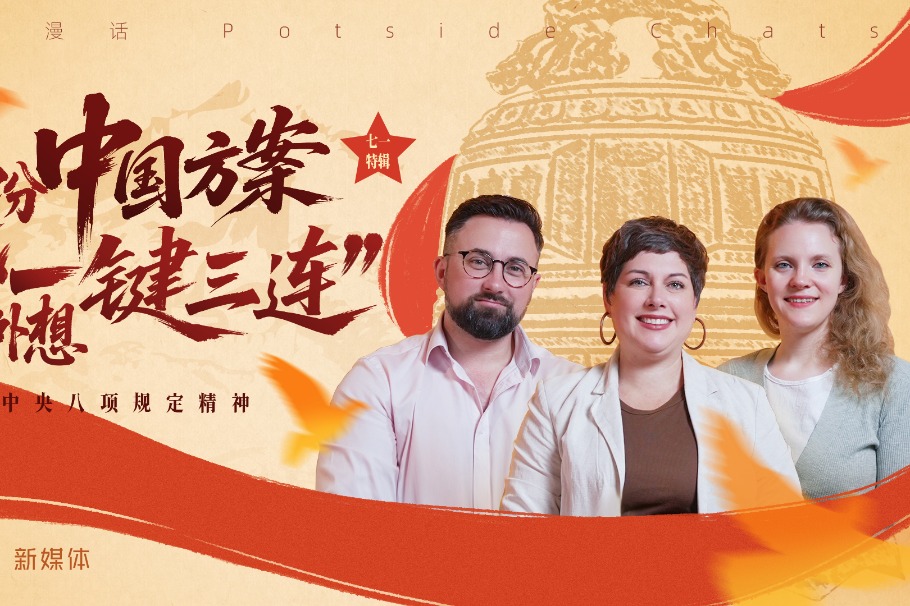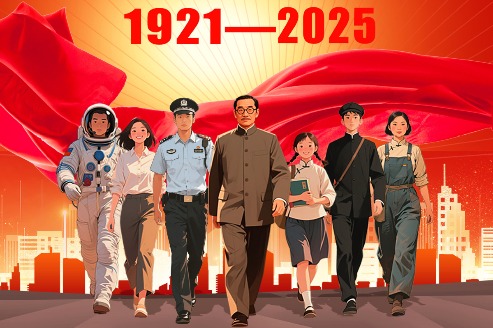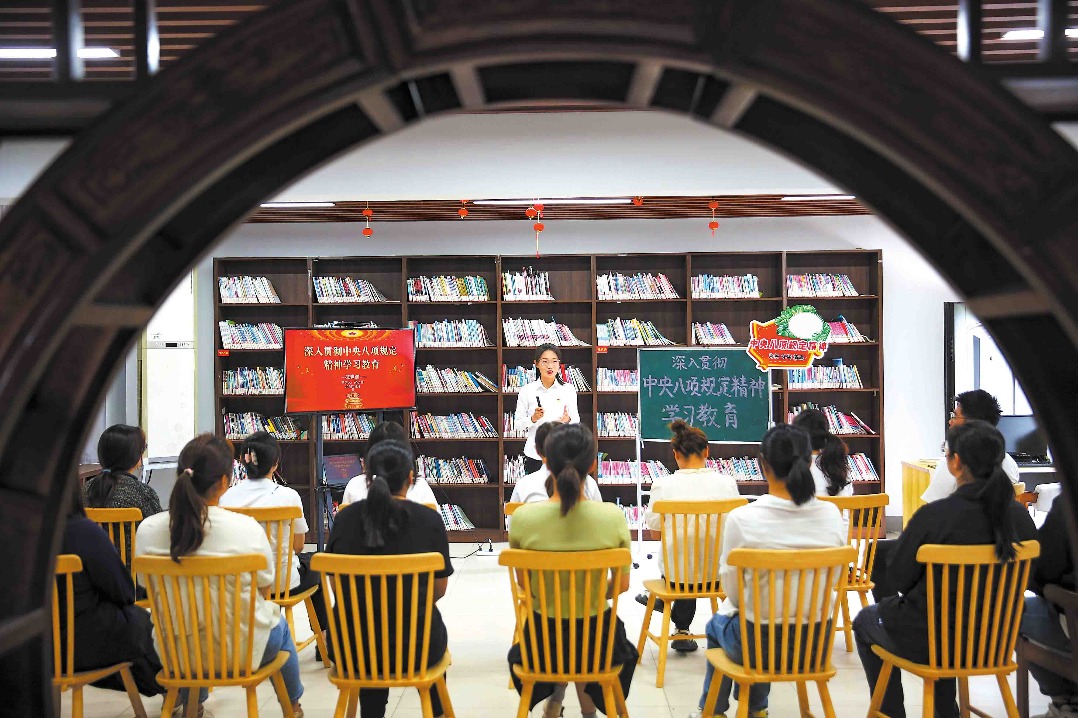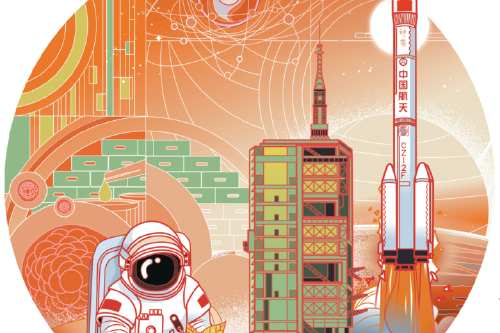Translating vision into action

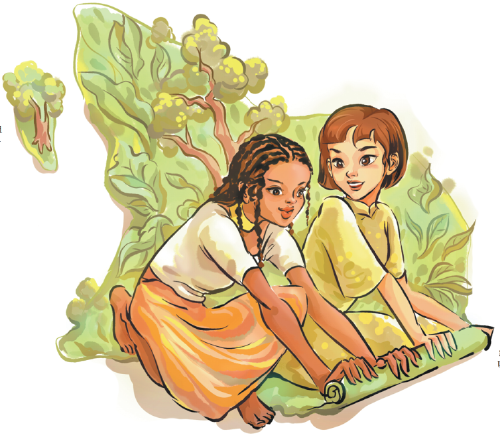
To achieve their common goal of sustainable development, China and Africa are strengthening their green cooperation
Today, green development has become the trend of the times and a worldwide consensus. China is the largest developing country in the world and Africa is home to most developing countries. The two sides adhere to the path of green development and jointly promote green development through concrete steps.
China and Africa have similar historical experiences and development tasks. After more than four decades of reform and opening-up, China entered a stage of rapid industrialization and urbanization. On Africa's part, the continent has also embarked on its own path of industrialization and urbanization. However, both sides are facing a multitude of challenges, such as resources constraints, economic transition, growing threats from climate change, and environmental problems.
Pursuing green and sustainable development is the intrinsic requirement and a must-do for China and Africa to achieve their respective as well as common development goals.
At the 2018 Beijing Summit of the Forum on China-Africa Cooperation, President Xi Jinping said that China will work with Africa to pursue green, low-carbon, circular and sustainable development and protect our lush mountains and lucid waters and all living beings on our planet. He said China will strengthen exchange and cooperation with Africa on climate change, clean energy, prevention and control of desertification and soil erosion, protection of wildlife and other areas of ecological and environmental preservation.
"Together, we can make China and Africa beautiful places for people to live in harmony with nature," he said. President Xi's words pointed the way forward for China-Africa cooperation on green development, an important aspect in building a China-Africa community with a shared future in the new era.
To solve existing development problems, China has proposed that development should be innovative, coordinated, green, open and shared. Green development aims to realize the harmonious coexistence between man and nature, and balance economic development with ecological protection, which serves as the overarching principle for China's development, and a mainstay of the country's international cooperation.
A prosperous Africa based on inclusive growth and sustainable development tops the list of the "seven aspirations" contained in the Agenda 2063 of the African Union, which is also a common pursuit of the 1.4 billion African people. To realize the goal, Africa has rolled out various green development programs. For instance, the AU launched the Great Green Wall initiative in 2007 to combat desertification and restore the continent's degraded ecology; last year, it unveiled the Green Recovery Action Plan to tackle the combined challenges of recovery from the COVID-19 pandemic and climate change. It can be seen that the concept of green development is taking root in Africa, and translating into concrete efforts, which is laying the foundation and provides an important guidance for China-Africa cooperation.
Take ecological protection for instance. The Mombasa-Nairobi Standard Gauge Railway is Kenya's first modern railway, and a major accomplishment of China-Africa cooperation under the Belt and Road Initiative. Construction of the project adheres to strict environmental standards, and ensures free movement of wild animals, such as elephants and giraffes, by reserving special paths for them. As such, it effectively balances ecological protection with social and economic development.
In terms of clean energy utilization, China and African countries have jointly built a number of clean energy projects, such as the Kaleta hydropower station in Guinea, the 50-megawatt photovoltaic power plant in Kenya's Garissa, the Adama wind farm in Ethiopia and the biogas power plant using sisal fiber in Tanzania. By tapping the rich resources of clean energy resources in Africa, these projects not only meet the electricity demands of local people, but also improve livelihoods and promote social and economic development.
China and Africa need to overcome various challenges and further strengthen green cooperation. It is important for the two sides to align their green development strategies and deepen policy communication and coordination to provide political and legal guarantees for jointly tackling climate change and promoting green development.
At the international level, the two sides should further coordinate their stance and enhance cooperation to push the implementation of the goals and principles of the United Nations Framework Convention on Climate Change and Paris Agreement, and call on developed countries to deliver on their promises of providing developing countries with financial and technology assistance to improve their capacities to deal with climate change.
With the FOCAC as the major cooperation platform, China and Africa should enhance overall planning on green development cooperation, and fully implement the consensus and goals set out in the Dakar Action Plan, the China-Africa Cooperation Vision 2035 and the Declaration on China-Africa Cooperation on Combating Climate Change. More African countries should be encouraged to join the Belt and Road Initiative International Green Development Coalition to advance the building of a green Silk Road.
Full play should be given to the role of the China-Africa Environmental Cooperation Center. Meanwhile, greater importance should be attached to the cultivation of talent and technology transfer in the field of green development to help break through Africa's talent shortage bottleneck and improve the continent's capacity in green development.
Ultimately, China-Africa green cooperation can only be materialized through the implementation of each individual project. In his speech at the opening ceremony of the Eighth Ministerial Conference of the FOCAC on Nov 29, 2021, President Xi said that China will undertake 10 green development, environmental protection and climate action projects for Africa in the coming three years, support the development of the African "Green Great Wall", and build in Africa demonstration areas for low-carbon development and climate change adaptation. The implementation of these projects will establish models in China-Africa green cooperation and create positive spillover effects, thus comprehensively upgrading the green cooperation between China and Africa.
Tian Muye is an assistant researcher of the China-Africa Institute. Wu Chuanhua is a research fellow of the China-Africa Institute and executive editor-in-chief of the China-Africa Studies. The authors contributed this article to China Watch, a think tank powered by China Daily. The views do not necessarily reflect those of China Daily.
Contact the editor at editor@chinawatch.cn

















